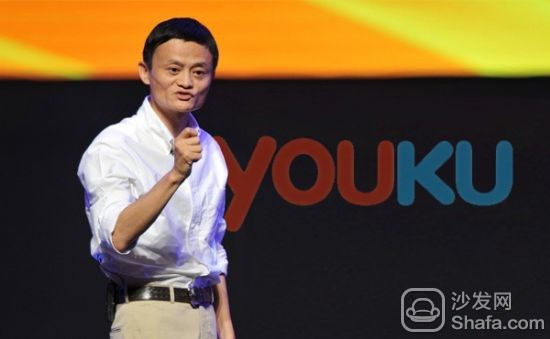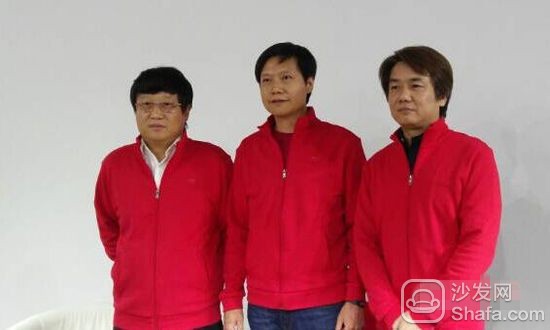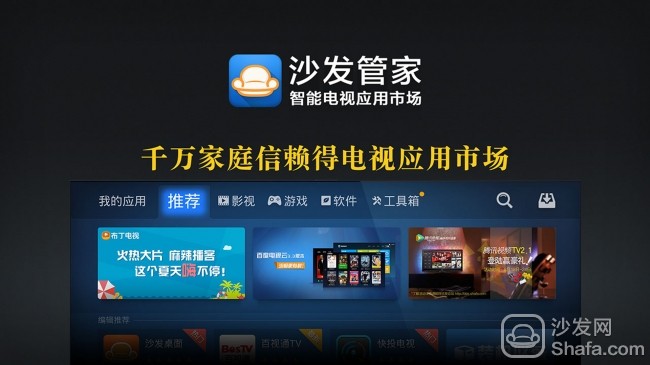Internet TV and smart box, how deep can't see water? What is the industrial purpose of the strong discipline discipline in the China Radio and TV Department? Is the traditional radio and television system moving from a dominant position to a superior one? Answering these questions is actually very simple. Jun looks at the 100 billion feast of the Internet television content industry!
Internet Content Industry "One Thousand Billion" Integration
In March 2014, Culture China and Alibaba entered into an agreement to issue 12.488 billion new shares to Ali at HK$0.5 per share, with a total value of HK$6,244 million. After the completion of the transaction, Alibaba will own 60% of the shares in Cultural China, and will be acting in concert with a number of cultural Chinese shareholders. It will have 70.8% of the voting power in China.

On the evening of April 8, Hua Digital Media announced the termination of the non-public offering plan disclosed at the end of January before raising funds of RMB 1 billion for unspecified individuals. Instead, the Hangzhou Yunxi Investment Partnership Company has purchased 286,671,000 shares of Hua Digital Media with a generous sum of RMB 6.536 billion. The investment will be realized in cash by Yunxi Investment. Yunxi Investment will actually hold more than 20% of Huadian Media shares. Yunxi Investment was initiated, established and controlled by Ma Yun, Shi Yuzhu and Xie Shihuang. Huada is currently the largest domestic Internet TV content license platform.
On the afternoon of April 28th, Youku Tudou announced the establishment of a strategic investment and partnership with Alibaba Group. Alibaba and Yunfeng Fund acquired Youku Tudou A-share common stock for US$1.22 billion, of which Alibaba holds 16.5% and Yunfeng Fund holds 2%.
In April, Xiaomi bought 26.2% of Thunder from 200 million U.S. dollars and became the largest shareholder of Thunder. Lei Jun holds a 39.4% stake in Thunder through Xiaomi Technology and Kingsoft. The control over Thunder is higher than that of all directors and executives of Thunder. The latter holds a 34.5% stake in Thunder. Thunder has a large number of loyal users through such services as video entertainment, download services, and network disk. Among them, the download software market continues to lead the industry.
In November, one of Xiaomi’s angel investors, Sina’s former editor-in-chief Chen Wei officially joined Xiaomi and was responsible for Xiaomi’s “content†industry chain construction. According to the news that Chen Xiao was in charge of the millet $1 billion will be used for "investment video site." Among them, the already realized investment includes US$10 million in investment in Youku Tudou, 300 million US dollars in shares in Iqiyi, and leaping into the second largest shareholder. Baidu and other iQiyi other shareholders also increased capital at the same time.
On November 24th, 2014, the reform and reorganization of Shanghai Culture, Radio, Film and Television Group Co., Ltd. (hereinafter referred to as SMG), the core of the two listed companies of BesTV and Oriental Pearl, finally came to an end. BesTV intends to absorb Oriental Pearl, which will be converted into a share of 3.04:1, at the price of 32.54 yuan per share, and the Oriental Pearl will be cancelled after the transaction is completed. At the same time, BesTV intends to purchase 100% of the equity of Shang Shi Ying Pi by the non-public issuance of shares, 100% of Wuhai’s shares, approximately 68% of Wenguang Interactive, and approximately 45.21% of Dongfang Xijie’s shares. Since then, BesTV intends to raise no more than 10 billion matching funds by issuing shares to institutions. Alibaba is also covered by the non-public offering.
On November 18th, more than 150 partners in the upstream and downstream industries of the China Internet and television industry chain gathered in Hangzhou, and released the latest China ZTE Internet TV ZERO version, as well as the Huada Internet TV ecological win-win plan. At present, the number of China Internet TV users has reached 50 million, and 20 million users have been activated. Huada Media announced on the evening of November 28 that the Huada Media subsidiary plans to initiate the establishment of an industrial investment fund, and the fund's subscription and contribution should not exceed 5 billion yuan. Among them, the number of Huada Media subsidiary plans to invest no more than 1 billion yuan. The industry investment fund will invest in areas such as content, technology, applications, cable networks, mobile internet, cloud computing, and smart terminals in the "new media, new networks."
Earlier, Huada Media announced on the evening of July 15 that it plans to invest RMB 250 million in Shanghai Yinrun Media Advertising Co., Ltd. (hereinafter referred to as “Shanghai Yinrunâ€) to deploy the upstream content industry. Announced on June 3, Huadian Media Network Co., Ltd. and Tianjin Tangren Film and TV Co., Ltd. signed the equity investment agreement of Tianjin Tangren Film and Television Co., Ltd., and the company used RMB 100 million to increase capital for Tangren Film and Television, accounting for 8.0655% of the shares in Tangren Film and Television after the capital increase. Among them, RMB 1 million was included in the newly registered capital of Tangren Film and Television, and a premium of RMB 99 million was included in the capital reserve of Tangren Film and Television.
On August 28th, Dr. Peng signed an agreement with Yinguang Internet Media's three-party shareholders, Yangguang New Media Culture Media (Beijing) Co., Ltd., Jiangsu Changjiang Media Co., Ltd., and Beijing Aiqiyi Technology Co., Ltd., to invest in capital increase. 30 million yuan was granted a 9.09% stake in Galaxy Internet TV. Of this, 12 million yuan was used as a capital contribution to the registered capital of Galaxy TV, and 18 million yuan was listed as Galaxy TV's capital accumulation fund. At present, Dr. Peng has sold at least 300,000 units of barley boxes sold through the Great Wall.
On the evening of June 25th, Ulead Poule and Southern Media held a new product launch event for Internet TV in Beijing, releasing a variety of new products in Internet TV content, interaction, and services. Since then, it was reported in July that Guangdong Radio and Television was preparing to launch "Guangdong Internet Radio and TV Station." At the same time, this network television station also has a better remembered name: Lizhitai. Specific operations will cooperate with Premier Pengle.
In August, the e-Guangzhou media of Hunan Broadcasting and Television announced that, in order to speed up the overseas expansion of the cable television network business, the company's holding subsidiary, Huafengda, acquired a 22.5% stake in Guangzhou Zhujiang Digital with cash of RMB 495 million. After the acquisition was completed, Huafengda and China Telecom Guangdong Branch became the second largest shareholder of Zhujiang Digital. This move will help Hunan TV and Radio's own copyrighted film and television programs, agency advertising, and other value-added services to land on the Guangzhou cable television network.
CIBN Internet TV held a conference in Shenzhen on November 24th to launch an "inside all one" program to OTT terminal manufacturers, provide license broadcast control platform + premium content combination, and help terminal manufacturers expand the market. This is the first time that CIBN Internet TV has sounded to the public market. It also means that the "unlicensed" field force officially entered the vision of the "seven licensees." This will involve more than 5 to 10 million units of inventory and incremental box market.
On October 23, Happy Sunshine, Hunan Satellite TV's wholly-owned subsidiary, is about to complete Round A financing. The valuation of the company exceeds RMB 6 billion. At present, there are more than 20 state-owned and privately-owned large-scale funds bidding and the financing results are expected to be early next year. Announced to the public. Nie Mei, deputy director of Hunan Satellite TV, said that Happy Mango's Mango TV will be market-based in full accordance with the Internet model. It does not rule out the introduction of external capital or the acquisition of other new media companies. Hunan Radio and Television reportedly invests 1 billion yuan in happy sunshine.
In addition, March news that Hunan Satellite TV's Golden Eagle Network and Mango TV will be merged. Since then, related persons of Golden Eagle said that the merger of the two websites is not yet certain, but Hunan Radio and Television has already obtained approval from the General Administration of Communications to build Hunan Internet Radio and Television.
On July 23, LeTV announced an announcement that it had strategically acquired shares of Chongqing Cable of Chongqing Radio and TV Holdings. Both parties will jointly fund the establishment of new subsidiaries as the main operating entities for the nationwide Internet TV business. Chongqing Radio and Television will actively apply for content licenses and authorize the use of newly established subsidiaries.
In October, Galaxy has reached a high degree of consensus with iqiyi on long-term business development cooperation. iQiyi Internet TV Division will be incorporated by Galaxy. The business and operation teams will be taken over by Galaxy. Iqiyi will devote its copyright, CDN resources and technology to Galaxy and fully support the development of Galaxy Internet TV. The corresponding assets of iQiyi equaled the internet TV license.
According to news on November 30th, the construction of the first phase of “Gehua Cloud Platform†has been completed, and Beijing Cable TV is expected to enter the “Cloud Age†during the year. During the year, Gehua Cable will strive to complete the entire network upgrade of HD interactive users. Cable TV users can upgrade the cloud platform without having to replace the set-top box. The number of high-definition interactive TV users in Beijing is 4.1 million. By the end of this year, it will reach 4.2 million. The on-line cloud platform will continue to promote the digital transformation of Beijing TV users from standard definition to high definition and from one-way to two-way.
All of the above are examples of Internet TV content industry integration and investment that the author can “rememberâ€. Under the countertops and outside the open capital market, many small-scale film and television, content, and platform companies, as well as software and hardware companies, still have large-scale strategic investment.
In short, from the content to the network, from the licensee to the non-licensee, the prelude to the big integration of the Internet TV industry has come. Based on market rules and the strictest rules of the SARFT, broadcasting, networking, traditional media, and even hardware companies have jointly reformed the domestic network television industry.
Great integration, new situation: Internet TV spring blossoms
Power follows the flow of interests and market instruments dominate. This is the biggest feature of the current round of integration of the Internet TV industry and the Internet TV industry.
For example, Xiaomi enters the content industry as a hardware enterprise and opens up the "contents industry chain" from mobile phones to TV products. His funds come from investors and his own profits. The mode of operation is through open market investment. Its purpose is not only through love. The Fantastic Art and the Galaxy have acquired a brand new business form, and they can obtain the indirect “license†benefits of “Internet TVâ€. At the same time, for the millet TV and key competitors, LeTV's experience of the difference between the short board make a good lesson.

This kind of investment chain has been “value clear,†“targeted,†and “behaving in an orderly manner,†from the outset, and is fully in line with current laws and industry guidelines. Compared to Xiaomi, Alibaba.com has a greater flow of funds in the Internet TV industry. Several shares, acquisitions, and potential investment opportunities have given Ali to close to 50 billion in content ecological leverage. And the energy of Internet TV shopping centered on Alipay's core Internet TV payment, Tmall and Taobao has not yet been included. Ali's investment objectives are very clear: entertainment content attracts the industrial ecology and attracts consumer enthusiasm, and later a set of consumer services realizes investment value-added: the value of this series of actions can be simply summed up using the word “entranceâ€.
The cross-industry and cross-industry integration, the realization of ecological development, and the value chain of the industrial chain are the basic characteristics of this major change in the Internet television content industry.
For example, Hunan Broadcasting and Television Corporation integrated Mango TV and Golden Eagle Network, and invested in the Guangdong cable television network. Two seemingly insignificant actions, namely, the realization of the integration of network television and traditional broadcasting and television systems, and the realization of a wide-ranging radio and television broadcasting system. The integration of television stations with the transmission industry such as the content industry and cable television networks. In the context of big video, large networks, and large applications, it is meaningless to distinguish the traditional boundaries of content companies, transmission companies, platform companies, video companies, and game companies.
"It is time to divide the borders," said an industry executive. Internet TV applications have broken the last barriers of the Internet and the broadband network. The power of capital also breaks the regional isolation status of traditional radio and television networks and television stations. New technologies such as OTT, aPP, and intelligence have also broken the boundaries and bottlenecks of television, mobile phones, and PCs. In this context, whoever is keen to distinguish between "traditional" identities can only be eliminated by history!
Conversely, while the TV application market is rapidly changing to the network and a series of traditional boundaries have been broken, dominant enterprises should integrate more stock market and consumer segmentation time, and this integration must be across application areas and geographical markets. of. Internet TV content companies with national influence, sufficient capital strength and operational experience are rare for the traditional radio and television market with more than 30 administrative divisions across the country. These tyrannical powers have seen huge empty spaces supporting their expansion. According to statistics, China’s leading WCDMA platform has only 50 million users, and 20 million customers have been activated—this is still far from the 350 million TV products, 200 million set-top boxes and nearly 1 billion mobile phone terminals. far.
Serious industry discipline has precisely promoted the extensive development of leading enterprises. This is the largest affirmation of the value of the SARFT's reform of the Internet TV and Internet TV content industry.
No rules, no standards. Without rules, it is impossible to quickly and orderly establish a benign value system for a new industry. The content supervision department emphasizes the broadcast and license system. In fact, it forms a strict selection mechanism. Under this mechanism, only companies with acute sense of smell and superior performance can stand out: those clowns who are opportunistic and poorly competitive are quickly “embarrassedâ€.
The establishment of the equal treatment system for licenses and overseas repertoires in both the internet and radio and television industries has actually established the most basic value structure of the entire network television industry: the value of content has been protected by the most stringent, fairness of access and communication network platforms. The input and output form a positive interaction. If this round of Internet TV industry content integration is seen as a symphony, there is no doubt that SARFT is a silent baton, and the strongest market forces.
Content and application structure is determined, and a basic chapter for the development of the hardware industry
In 2014, smart box product sales are expected to reach 10,000 units, five times that of 2013. At the same time, the penetration rate of smart TV at the end of 2014 will exceed 75%. Although sales of color TVs will drop by 6-8 points in the year, if the sales volume of boxes is calculated to increase, the number of sales outlets in the living room will increase by more than twice as much as last year.
The power to promote the rapid penetration of Internet TV hardware products is, of course, inseparable from the "high degree of maturity and development of hardware technology." However, under the background of the industry technology platform's relative cognition of excess technology, the driving effect of technology is far less clear than the driving effect of market demand. Among them, the tumultuous reform of the content industry is the biggest support force.

Including the traditional "Clouding" of broadcasting networks (representative case: Gehua Cable), IPTV intelligence (representative case: Telecom IPTV Box), and the rapid expansion of Internet TV (representative case: active customer base with more than 20 million Chinese), The value of internet access companies is diversified (on behalf of the enterprise: Dr. Peng’s Great Wall Broadband with 100Mb broadband to send barley 4K smart boxes), the popularity of multi-screen applications (representing the company: Changhong chiq TV, Skyworth's latest cool open products), living room Diversified value (on behalf of the product: TCL WeChat TV) ... These brand new Internet TV elements are all "new products" in 2014. It is these new products that make smart and network applications become the new normal for watching TV.
Looking forward to 2015, the integration and transformation of the Internet TV industry will inevitably enter deepwater areas: cross-industry cooperation and integration; new application experiences and value systems will inevitably become the industry's largest hotspot. This will prompt the hardware industry to choose more differentiated market measures.
For example, the value of the vertical integration of color TV companies and box companies with content, platforms, and network vendors will become even more prominent, and intelligent TV product coverage will be fully universalized; at the end of the box product, different types of products will have more and different business models. There will be more products, smart boxes in sales still have the potential to double growth; in applications, auxiliary hardware products will develop faster: including game auxiliary products, imaging auxiliary products, interactive auxiliary products, etc. will usher in development Opportunities, and create new value for color TV-based hardware companies; in the final content, the types of forms will be more diverse, LeTV will continue to be a model of self-produced drama, and the competition for single-playing rights will also be more intense and participatory. Variety shows will be more popular, and other applications such as video games and shopping will also develop... Of course, TV software, OTT and app industries will also have greater opportunities in the above background.
However, with the integration of the content industry, the development of hardware camps will also be accompanied by risks. The so-called risk is mainly: the test of the election station that cooperates with the platform ecological group; the test of the unclear profit model; and the test of the competitive competition that the market re-divides and reshuffles under the reform of the industry. In 2015, the various software and hardware companies for Internet TV applications, answering the above three questions, are not easy tasks.
At the end of the article, it is time to answer the first three questions: Internet TV and smart boxes. How deep can't see the water? If you look at the size of giants such as Telecom, Huawei, Ali, and CCTV, and billions of dollars worth of investment, you can know that this is a "roulette that can only be played by big brothers." What is the industrial purpose of the strong discipline discipline in the China Radio and TV Department? The industry consolidation and capital frenzy will inevitably lead to the wrong path: Only the most stringent industry discipline can effectively increase the “effectiveness†of investment in each industry and reduce the systematic risk of the entire industry chain. Is the traditional radio and television system moving from a dominant position to a superior one? Leading this industry integration is not only the traditional network video companies, but also more investment giants, and the "radio-power" Corps, which is already dominant in TV applications. The latter has very clearly defined its own The inventory advantages, content advantages, and policy advantages have become market advantages. The Department of Broadcasting and Television, for the first time in the triple play, has mastered a certain industrial integration initiative, and naturally will not be willing to be a supporting role.
In any case, the integration of the 100 billion feast of the Internet TV industry has already kicked off. Without any Internet or radio and television companies being able to stay out of the business, the only difference is whether it is early or late, whether it is better to survive, or if it is eaten and died. The 2015 drama will also be even more exciting.
Recommended installation sofa butler Download: http://app.shafa.com/
